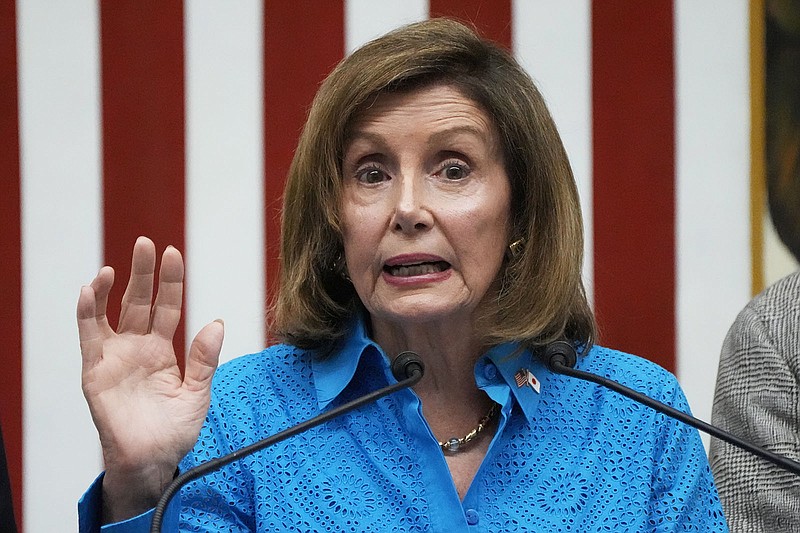TOKYO -- China will not be able to isolate Taiwan by preventing U.S. officials from traveling there, House Speaker Nancy Pelosi said Friday in Tokyo as she wrapped up an Asia tour highlighted by a visit to Taipei that angered Beijing.
Beijing has tried to isolate Taiwan, including by preventing the self-governing island from joining the World Health Organization, Pelosi said.
"They may try to keep Taiwan from visiting or participating in other places, but they will not isolate Taiwan by preventing us to travel there," she said, defending her trip that has escalated tensions in the region.
Pelosi said her visit to Taiwan was not intended to change the status quo for the island but to maintain peace in the Taiwan Strait, which separates Taiwan and mainland China. She praised Taiwan's hard-fought democracy and success in technology and business, while criticizing Chinese violations of trade agreements, weapons proliferation and human rights problems, including its treatment of its Muslim Uyghur minority.
"If we do not speak out for human rights in China because of commercial interests, we lose all moral authority to speak out about human rights any place in the world," Pelosi said in a news conference. "China has some contradictions -- some progress in terms of lifting people up, some horrible things happening in terms of the Uyghurs. In fact, it's been labeled a genocide."
Pelosi said "the two big countries" -- the United States and China -- must communicate in areas such as climate and other global issues. "It isn't about our visit determining what the U.S.-China relationship is. It's a much bigger and longer-term challenge and once again, we have to recognize that we have to work together on certain areas."
Pelosi and five other members of Congress arrived in Tokyo late Thursday after visiting Singapore, Malaysia, Taiwan and South Korea.
In their breakfast meeting, Kishida said Pelosi and her delegation discussed shared security concerns over China, North Korea and Russia and pledged to work toward peace and stability in Taiwan. Pelosi also held talks with her Japanese counterpart, lower house Speaker Hiroyuki Hosoda, after observing a plenary session at which they were welcomed by a standing ovation.
Japan and its key ally, the U.S., have been pushing for new security and economic frameworks with other democracies in the Indo-Pacific region and Europe as a counter to China's growing influence amid rising tensions between Beijing and Taipei.
Days before Pelosi's Taiwan visit, a group of senior Japanese lawmakers, including former Defense Minister Shigeru Ishiba, visited the island and discussed regional security with Taiwanese President Tsai Ing-wen. Ishiba said Japan, while working with the United States to prevent conflict in the Indo-Pacific, wants a defense agreement with Taiwan.
China sees the island as a breakaway province and considers visits to Taiwan by foreign officials as recognizing its sovereignty.
The Biden administration and Pelosi have said the United States remains committed to a "one China" policy, which recognizes Beijing as the government of China but allows informal relations and defense ties with Taipei. The administration discouraged but did not prevent Pelosi from visiting.
As leader of the House of Representatives, Pelosi's trip has heightened U.S.-China tensions more than visits by other members of Congress. The last House speaker to visit Taiwan was Newt Gingrich in 1997.
China and Taiwan, which split in 1949 after a civil war, have no official relations but multibillion-dollar business ties.
Information for this article was contributed by Hyung-jin Kim and Huizhong Wu of The Associated Press.
